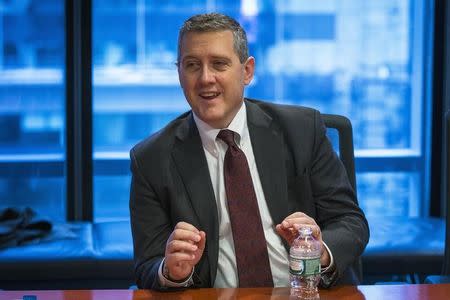Bullard says 'tough' for Fed to reverse course and hike rates in October

By Howard Schneider WASHINGTON (Reuters) - It will be difficult for the Federal Reserve to switch gears after only one month of additional data and raise rates at its October meeting, St. Louis Fed President James Bullard said on Tuesday. Bullard supports a rate hike and opposed the decision to delay when the Fed met in September, but said, as a practical matter, the economic data since released is unlikely to convince other policymakers to increase rates when the Fed meets in two weeks. "It is very tough for the committee to make a big decision and then change it after only one meeting," Bullard said. "Roughly speaking the data has not been that different from what would have been expected, and the jobs report was weaker." Bullard’s comments and call for higher rates and a return to "orthodox" monetary policy highlighted the breadth of the divide at the U.S. central bank over how to respond to signs of weak global demand. On Monday, Fed governor Lael Brainard warned “deflationary” trends around the world could have a larger-than-expected effect on the United States, and said the Fed should watch and wait until it is clear that won’t happen. Though 13 of 17 policymakers at the September meeting said they expect a rate hike this year, there is an active debate over the risks from abroad, and what conclusion to draw from a recent disappointing jobs report. Fed officials have said a slowdown in job creation is to be expected as the economy approaches full employment. The worry is that the drag from abroad could intensify, hurt U.S. growth, and push job creation even lower. Bullard, however, criticized efforts to respond too explicitly to global events, arguing that markets have largely priced in a strong dollar, low oil prices and other global developments. He said policymakers should focus instead on the fact that the zero interest rate policy set during a financial crisis is inappropriate for an economy with a 5.1 percent unemployment rate and inflation that will inevitably move higher. “The die has been cast. We are going to have extremely accommodative policy for two to three years,” assuming a gradual increase in the federal funds rate towards more normal levels, Bullard said. “The risk is that you stay with emergency settings way beyond the time emergency settings are required, with unknown consequences. So the simple thing to do is edge your policy back to normal.” (Reporting by Howard Schneider; Editing by Andrea Ricci)

 Yahoo News
Yahoo News 